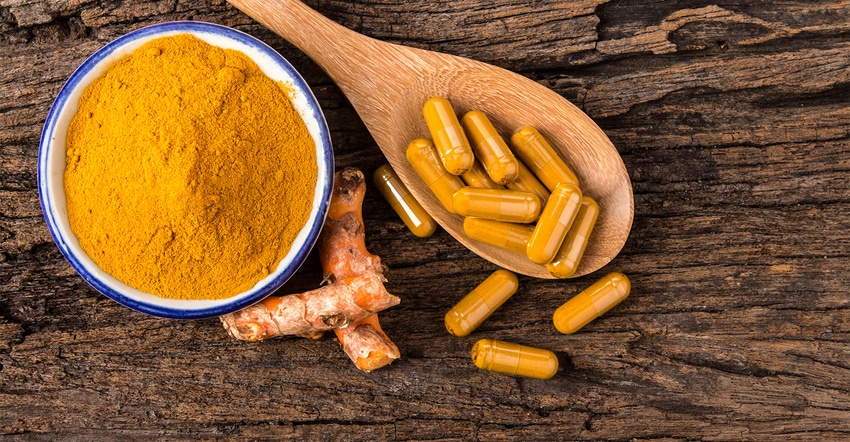According to SPINS, 2017 sales of turmeric were more than US$4.8 million in U.S. conventional multioutlet stores—a 31 percent year-over-year increase compared to 2016.
March 5, 2019

According to SPINS, 2017 sales of turmeric were more than US$4.8 million in U.S. conventional multioutlet stores—a 31 percent year-over-year increase compared to 2016. Additionally, the global curcumin market is expected to reach $110.5 million by 2024, a 137 percent increase from 2016, based on Global Market Insights data. Curcumin continues to climb, though several factors have the potential to impact the success of curcumin products. Consider these key market dynamics affecting the curcumin market.
Popularity & potential. Curcumin is enjoying a nod of approval from consumers seeking its health benefits, namely its anti-inflammatory effects. Natural Marketing Institute (NMI) reported mainstream consumer interest in using nutritional supplements to treat inflammation is on the rise; 30 percent of U.S. consumers were very interested in a supplement to manage or prevent inflammation in the body in 2017 vs. 19 percent in 2009. The anti-inflammatory effects of curcumin translate to several areas of health, with research supporting beneficial effects in cognition, mood and sports nutrition, furthering the reach of this powerful compound.
Ensuring efficacy & quality. Curcumin is challenged with poor bioavailability, which has led ingredient manufacturers and product developers to create solutions that ensure effective curcumin products. Though there are proprietary ingredients and formulation solutions—such as adding piperine to curcumin products—to address curcumin’s bioavailability issues, concern remains surrounding the efficacy of curcumin products. Some researchers, for example, question whether the supporting compounds in turmeric are necessary for curcumin bioavailability. Another challenge for curcumin is the threat of adulteration. The Botanical Adulteration Program reported curcumin has been adulterated with other Curcuma species, starches and dyes. More recently, the addition of undeclared synthetic curcumin or mixtures of synthetic curcuminoids to turmeric extracts has been reported.
Beyond supplements. Turmeric, from which the curcumin compound derives, is an increasingly popular ingredient in foods and beverages. However, food and beverage brands must use caution, as turmeric (and therefore curcumin) has only been approved by FDA as a food colorant and is not recognized for its medicinal properties. Therefore, turmeric should be listed as a coloring agent and not a functional ingredient, which seems like a bit of a grey area considering the many functional products using turmeric on the market.
In the coming year, proprietary ingredients will become increasingly prevalent on the market as consumers look to products and brands they trust to deliver effective, safe curcumin products.
For more, download the Creating Competent Curcumin Goods digital magazine.
About the Author(s)
You May Also Like






.png?width=800&auto=webp&quality=80&disable=upscale)